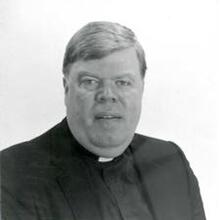The annual convention of the American Philosophical Association could rarely be described as a festive affair. Thousands of anxious philosophy professors descend on a hotel to give papers on obscure topics as graduate students grimly run the gantlet of hiring committees in a windowless ballroom trying to capture the rare tenure-track job. Despite the encircling gloom, the A.P.A. convention is a good venue to detect current trends in the profession. At this year’s conference in January in Washington, D.C., several sessions featured a promising trend: the ethics of curiosity. One session cheerfully provided bumper stickers: “Curiosity may have killed the cat but surely it was a noble death.”
One of the architects of the new interest in curiosity is Ernest Sosa of Rutgers. A leading proponent of virtue epistemology, Sosa argues that to understand human knowledge we have to delineate the intellectual habits (virtues) that permit a human being to qualify as a responsible thinker (or, in wooden epistemological jargon, as a good cognizer). Sosa and his disciples have long emphasized the importance of consistency, logic, respect for evidence and critical scrutiny as appropriate virtues for the mature thinker. But the new emphasis on curiosity as a noetic virtue adds a note of transcendence to the portrait of the ideal thinker. Responsible thinking cannot remain limited to the mastery of one discipline or to engagement with one narrow vector of human experience. An ardent curiosity about languages one does not speak, countries one has never visited and the new neighbors down the block is now a trait of the excellence in thinking that virtue-epistemologists have labored to sketch. A new ecstasy has entered the noetic mix.
A blogger going by the pseudonym of Green Whale perfectly illustrates this noetic curiosity: “I want to know about imaginary numbers, Saturn-shaped black holes in interstellar space, the Pueblo Indians, differential equations, Norse mythology, chaos theory, cytology, the Second Law of Thermodynamics, women in the medieval ages, how to read music, the habits of orangutans in the rain forests of Sumatra, Sanskrit, syllogisms, illuminated manuscripts, and how the first Encyclopedia came to be published. Not least, I want to know why I want to know all these things, what the fire is that burns in my belly.”
In many ways this new emphasis on the virtue of curiosity only continues the revival of Aristotle that has marked important sectors of ethics and epistemology in Anglophone philosophy over the past decades. For Aristotle, virtue was not confined to the moral habits of justice, prudence, fortitude and temperance. The intellect required its own habits to recognize truth successfully. Hence the Aristotelian intellectual virtues of science, understanding and wisdom. In their catalogue of noetic virtues many virtue-epistemologists have come up with a similar list. But Aristotle also insisted that philosophical reflection was impossible without an antecedent wonder concerning existence itself. It is this primordial awe at the existence and nature of the world that permits the thinking process to progress with metaphysical depth. The new emphasis on curiosity also carries echoes of the Romantics and their cult of artistic and scientific creativity. The intellectual restlessness of an Einstein or a Picasso is the paradigm of curiosity working at white heat.
As critics of the ethics of curiosity have argued, there is a dark noetic side to curiosity. Many curious people master trivia and exhibit little depth. The National Enquirer certainly piques the curiosity of “inquiring minds,” but this curiosity has little to do with theoretical physics. The gossip manipulates curiosity to destroy privacy. Many of the worst abuses in medicine were committed by scientists who sincerely wanted to push back the borders of knowledge but who misused other human beings as a means to an end in the process. In the figures of Eve and Pandora, both the Bible and Greek mythology begin with cautionary tales on the dangers of curiosity allied to idolatry. But the abuses of curiosity do not destroy its dynamic luster when allied to the search for truth in depth. The new ethics of curiosity is part of the re-enchantment of contemporary philosophy.








